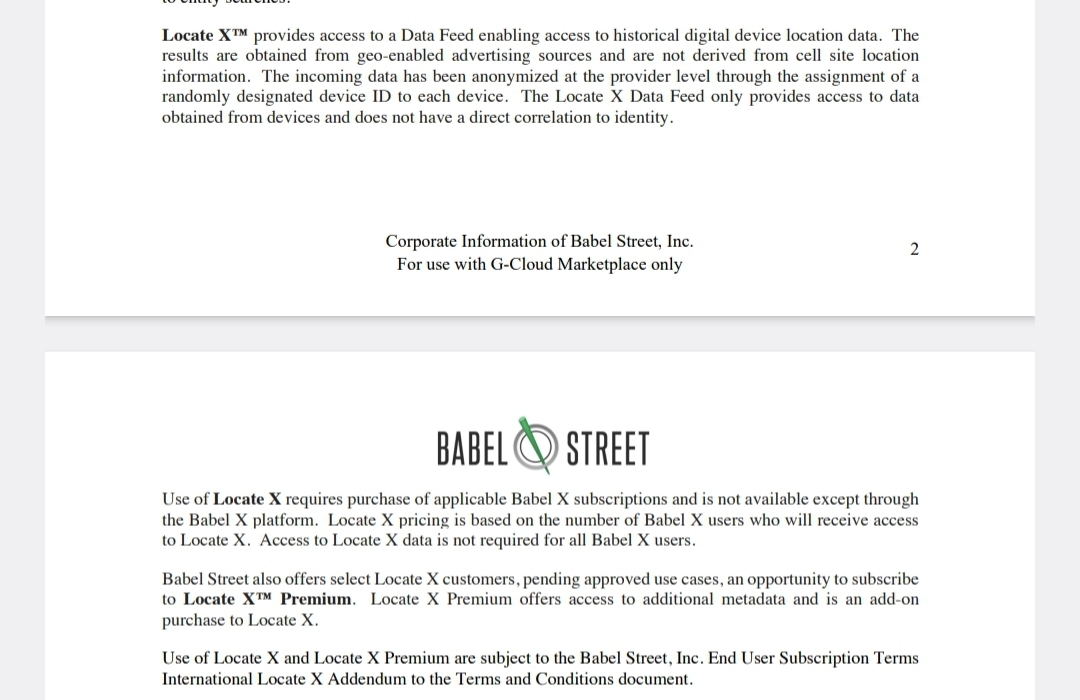

Some additional info based on their published material (screenshot below). The software gets its data from “publicly available sources” which includes tracking information from many different online advertisers, public social media posts, etc. As we know, the advertising data can sometimes have your personal info attached - sometimes not. Babel Street claims to anonymize the data, but let’s assume there is a $$ amount at which they won’t.
So, theoretically, if you can successfully avoid ad trackers, and you don’t post on social media platforms except where you want to be “seen”, you can avoid this tracking (granted that seems quite impossible these days).




Yes, and add an Agile framework. Extreme Monkey typing.